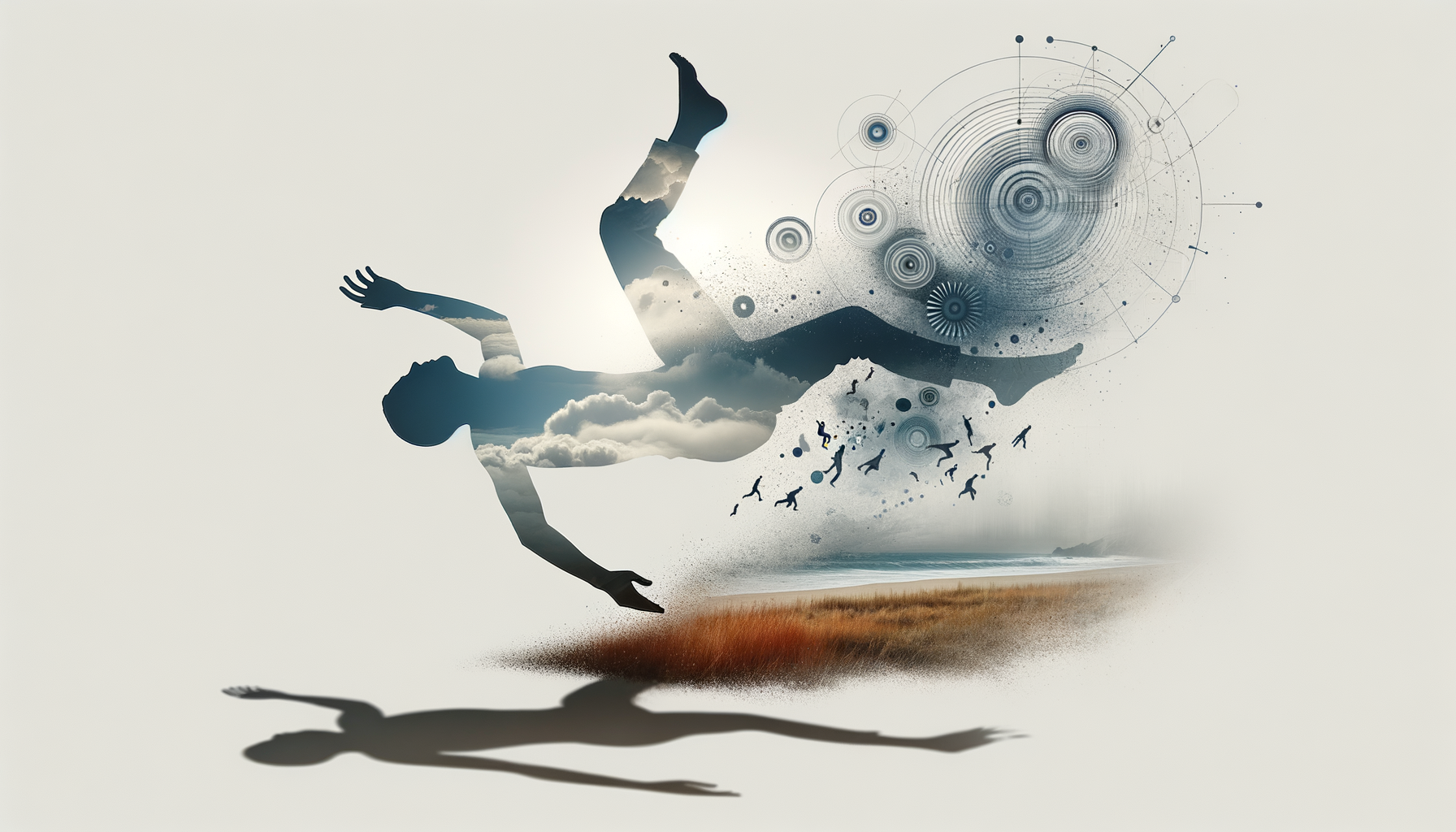The Moment I Fell Flat (Literally): Lessons from My First Big Failure
Failure has a way of grounding us—sometimes quite literally. Picture this: a music showcase at my performing arts high school, the auditorium packed with students, teachers, and local talent scouts. I was 16, wearing my favorite black cowboy boots and my mother’s vintage denim skirt (it had just enough rhinestones to catch the stage lights). The plan was to strum my acoustic guitar, croon my original song—something deep about the Tennessee hills and heartbreak—and leave everyone breathless.
What actually happened? Two lyrics in, I missed the mic stand while trying to reposition it and flopped straight onto the stage floor. Audience gasps echoed through the auditorium. My guitar pick flew like a rogue frisbee into the first row. Not exactly the standing ovation I’d imagined.
In a city like Nashville, where everyone sings and everyone’s cousin is “about to be signed,” failure feels like more than just a bruise to your pride; it feels like a broadcast of your inadequacies to an audience full of dreamers and professionals. That day, face down onstage, I had two choices—cry and run (my teenage gut instinct) or laugh, stand, and keep going. Spoiler alert: I chose the latter, and I’m glad I did because that very moment planted the seeds of resilience in me. Let me walk you through what I learned—and how failure became my best teacher.
Falling Isn't the End
Sometimes life feels like a rom-com, but instead of a grand romantic gesture, you’re the protagonist who trips over her own feet holding Starbucks. Falling—whether it’s on stage or in life—can tempt you into thinking your story’s over. But here’s the little-known bonus: when you’ve already crashed, there’s nowhere to go but up.
I’ll admit, in the first moments of mishap, I wanted to vanish into the cracks of those old auditorium floorboards. But after an awkward pause, the absurdity of the situation hit me; there I was, sprawled out onstage while my guitar hummed ominously from the impact. I looked up (saw my drama teacher visibly cringing), took a deep breath, and said, “Well, y’all didn’t come here for interpretive dance, but you’re welcome.” The crowd laughed. Miraculously, they clapped when I got back up.
Life cheat code: It isn’t failure itself that defines us; it’s the way we recover. Falling is humiliating, sure, but what’s more memorable are the people who get up, dust off their jeans, and try again. In relationships, work, or karaoke night at your cousin’s wedding, let yourself fall—and focus on that messy, human, wonderful comeback.
Take Yourself Seriously, But Not Too Seriously
There’s a strange pressure to be the perfect performer in life. Whether it’s on a stage or on Instagram, the veneer of flawlessness is tough to crack. But here’s the funny thing about failure: when it happens, people don’t tend to judge you as harshly as you think. Most of them might even root for you.
After my onstage pratfall, I finished my song—complete with shaky knees and a slightly useless E minor chord. Was it my best work? No. But after the showcase, a classmate approached me and said, “You made the stage feel less scary. If you can recover from that, maybe I can actually audition next year.”
See what happens when we let go of our pride and perfectionism? It gives the people around us permission to be imperfect too. And in a culture where curated highlight reels dominate, showing up as your scrappy, flawed, beautiful self is low-key revolutionary.
Failure Forces You to Rethink Your “Why”
The best thing about failure (besides the free character development) is that it makes you reflect on your next move. The truth is, that tumble made me question whether I wanted to perform music or just write it. I had a choice: double down on my singing career—or pivot. Spoiler alert: I pivoted.
Songwriting, as it turns out, became my safe harbor and creative playground. I discovered a passion for telling stories through lyrics, where I could explore themes and truths without the pressure of spotlights and mic stands. Eventually, writing spun off into storytelling of another kind: short stories, essays, and novels inspired by my Southern upbringing.
Failure, I've learned, isn’t just a dead end. It’s a hidden detour, a roadmap to finding your real passion. Could I have continued performing? Maybe. Would I have realized how much I love crafting stories on the page if I hadn’t fallen that day? Probably not.
So, if you’re in the middle of a failure—or nursing the sting of a recent one—ask yourself: Is this a pivot point? Where’s the opportunity hiding in the rubble?
Laugh, Then Learn
You know what helped me survive my teenage failure with my dignity somewhat intact? Humor. A good laugh is protective armor against life’s awkward moments. Cringing might feel more appropriate in the heat of the moment, but trust me, laughter can turn catastrophe into comedy—and make life weirdly enjoyable.
Years after my mic-stand mishap, I’ve compiled a mental highlight reel of other embarrassing failures: karaoke nights gone wrong, questionable essay submissions in college, and one memorable Thanksgiving dinner where I burned a pumpkin pie and accidentally seated two feuding relatives beside each other. Each moment has become a story I now pull out at parties because these ridiculous, imperfect chapters are what make life fun—and worth sharing.
That’s the thing no one tells you about failure: someday, it’ll make you laugh. So, you might as well start earlier.
Build Resilience, Not a Wall
Resilience gets tossed around as some vague “keep going!” cheer—but in reality, it’s much deeper. Resilience is about learning that failure isn’t a final destination; it’s a pit stop where you shake your engine, grab a snack, and find a better route.
What I now consider my “first major failure” wasn’t my last. I’ve stumbled in writing pitches, in relationships (“we need to talk” is rarely good news), and in attempts at sourdough that resembled bricks instead of bread. But stumbling is a rite of passage on the road to growth.
Here’s my advice:
- Feel your failures. Let yourself cringe, cry, or facepalm—it’s part of processing.
- Then look for the lesson. Not every misstep delivers Oprah-level clarity, but most failures leave breadcrumbs of insight.
- And keep going. If you’re lucky, you’ll collect a few scars and some stories to tell.
Failure as a Friend
Flipping through the moments that have shaped me most, failure stands out as the constant mentor I never wanted, but desperately needed. My tumble taught me to improvise, laugh at myself, and listen to those little nudges telling me to pivot when things didn’t pan out.
So, to anyone reading this, standing amid the wreckage of your own flop: I see you. It hurts right now, but the sting will fade. And maybe, just maybe, your biggest failure will bloom into one of your proudest lessons. And someday, when someone asks, “What’s the most embarrassing thing you’ve ever done?” you can tell them your story—preferably with a confident grin and a great punchline.




















